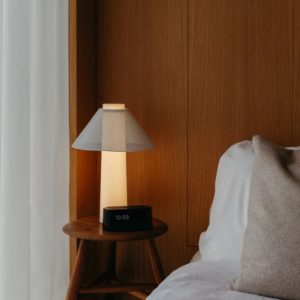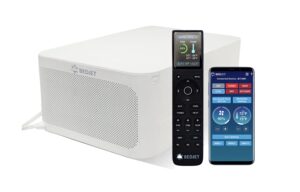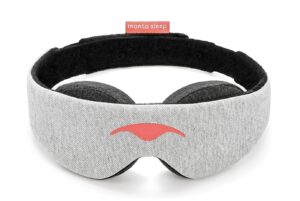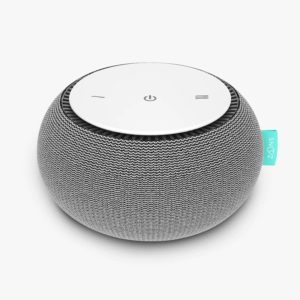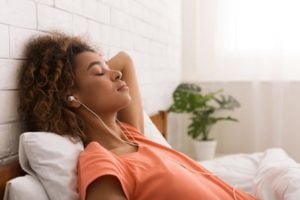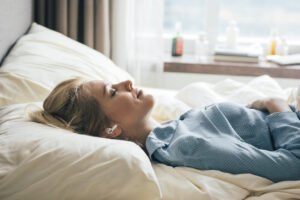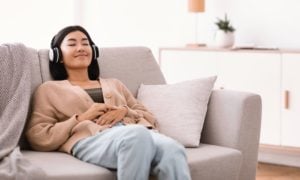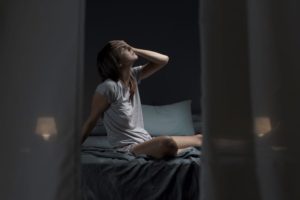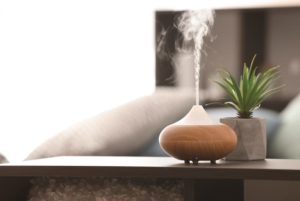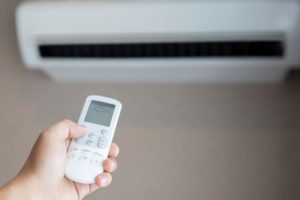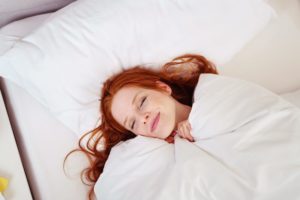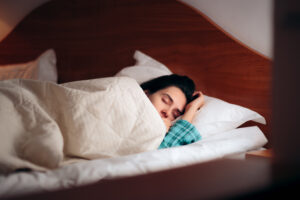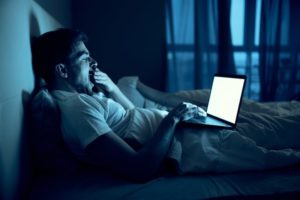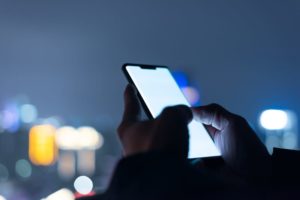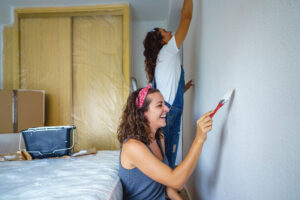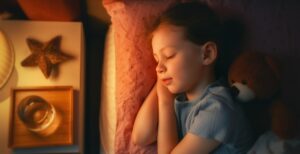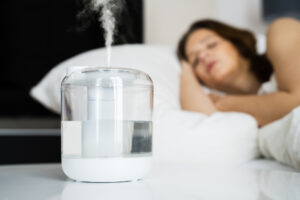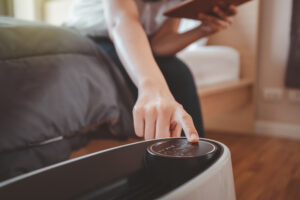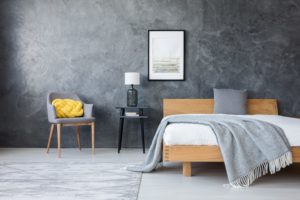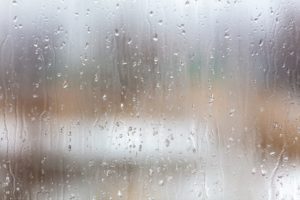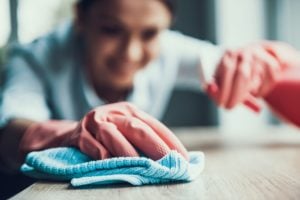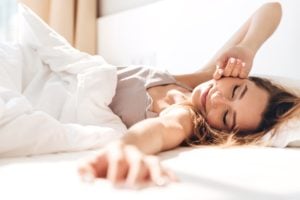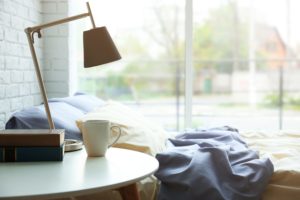When you buy through our links, we may earn a commission. Products or services may be offered by an affiliated entity. Learn more.
How to Make Your Room Dark
Each of us possesses an internal clock—also called the circadian rhythm—which controls our natural sleep-wake cycle. Circadian rhythm cues us to feel awake during the day and sleepy at night. Light is the most important external factor affecting readiness for sleep. Before the advent of electricity, humans woke and slept in sync with the rising and setting of the sun, but now lights in our homes, electronics, and light pollution outside have made the relationship between light and sleep much more complex.
Certain physical processes help to prepare the body for sleep. In response to darkness, the pineal gland begins to produce melatonin. Melatonin is a serotonin-derived hormone that promotes sleepiness. However, exposure to light blocks the production of melatonin. When this happens before bed or during sleep, it can interfere with the sleep-wake cycle.
Exposure to light at night may also be linked with health conditions such as depression , anxiety , and obesity . Fortunately, good sleep hygiene and a dark bedroom environment can promote sufficient, restorative sleep. To get your best night’s sleep, try the following tips for eliminating light sources in your bedroom and avoiding bright lights before bed.
Cover Windows
Light from the sun and moon, as well as security lights or street lights, can enter the bedroom through windows. If your blinds or curtains do not block outside light sufficiently, you might consider investing in blackout curtains. Covering the window with aluminum foil is a low-cost alternative that also blocks outdoor light.
Mind the Gap
The gap between the door and the floor is another potential source of light at night. Turn off hallway lights before going to bed, or place a rolled-up towel against your door gap to block light from entering.
Wear an Eye Mask
If it’s not possible to block light from entering your room, or if you prefer not to, wearing an eye mask might help. Keep in mind that you need to keep the eye mask on throughout the night in order for it to be effective in preventing your exposure to light. Research suggests that light penetrates the eyelids and, in doing so, inhibits melatonin production.
Stow Away Electronics
Although the temptation to use them might be strong, it’s best to put your cell phone, laptop, and tablet away at least 30 minutes before bed to promote quality sleep. The use of electronic devices before bed is associated with increased sleep issues and poorer quality sleep. Take a look around your bedroom environment to identify all sources of light, such as digital clocks, charging stations, and other electronics. Cover up these lights, or store them outside the bedroom.
Dim the Lights
Research has shown that being in a fully lit room prior to going to sleep results in delayed and shortened production of melatonin compared to dim lighting. Try switching from bright overhead lights to dim ambient lighting in your home during the hours leading up to bedtime.
Consider Nighttime Needs
You may need to use the bathroom or get a drink of water in the middle of the night. Rather than turning on overhead lights to illuminate your pathway, you could install motion-sensor nightlights. It’s important to have enough light so that you can safely make your way through your home, but limiting the amount of light you are exposed to can mitigate disruption to sleep and help you fall asleep again more quickly.

Still have questions? Ask our community!
Join our Sleep Care Community — a trusted hub of sleep health professionals, product specialists, and people just like you. Whether you need expert sleep advice for your insomnia or you’re searching for the perfect mattress, we’ve got you covered. Get personalized guidance from the experts who know sleep best.
References
7 Sources
-
Blume, C., Garbazza, C., & Spitschan, M. (2019). Effects of light on human circadian rhythms, sleep and mood. Somnologie : Schlafforschung und Schlafmedizin = Somnology : sleep research and sleep medicine, 23(3), 147–156.
https://pubmed.ncbi.nlm.nih.gov/31534436/ -
Masters, A., Pandi-Perumal, S. R., Seixas, A., Girardin, J. L., & McFarlane, S. I. (2014). Melatonin, the Hormone of Darkness: From Sleep Promotion to Ebola Treatment. Brain disorders & therapy, 4(1), 1000151.
https://pubmed.ncbi.nlm.nih.gov/25705578/ -
Obayashi, K., Saeki, K., & Kurumatani, N. (2018). Bedroom Light Exposure at Night and the Incidence of Depressive Symptoms: A Longitudinal Study of the HEIJO-KYO Cohort. American journal of epidemiology, 187(3), 427–434.
https://academic.oup.com/aje/article/187/3/427/4056592 -
Paksarian, D., Rudolph, K. E., Stapp, E. K., Dunster, G. P., He, J., Mennitt, D., Hattar, S., Casey, J. A., James, P., & Merikangas, K. R. (2020). Association of Outdoor Artificial Light at Night With Mental Disorders and Sleep Patterns Among US Adolescents. JAMA psychiatry, e201935. Advance online publication.
https://pubmed.ncbi.nlm.nih.gov/32639562/ -
Nelson, R. J., & Chbeir, S. (2018). Dark matters: effects of light at night on metabolism. The Proceedings of the Nutrition Society, 77(3), 223–229.
https://pubmed.ncbi.nlm.nih.gov/29747703/ -
Figueiro, M. G., & Rea, M. S. (2012). Preliminary evidence that light through the eyelids can suppress melatonin and phase shift dim light melatonin onset. BMC research notes, 5, 221.
https://pubmed.ncbi.nlm.nih.gov/22564396/ -
Gooley, J. J., Chamberlain, K., Smith, K. A., Khalsa, S. B., Rajaratnam, S. M., Van Reen, E., Zeitzer, J. M., Czeisler, C. A., & Lockley, S. W. (2011). Exposure to room light before bedtime suppresses melatonin onset and shortens melatonin duration in humans. The Journal of Clinical Endocrinology and Metabolism, 96(3), E463–E472.
https://pubmed.ncbi.nlm.nih.gov/21193540/


